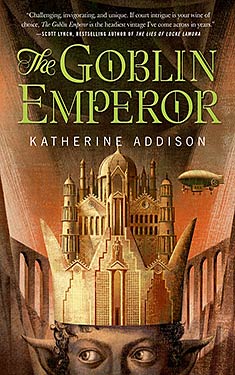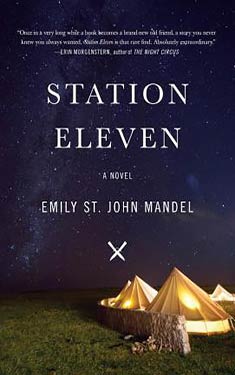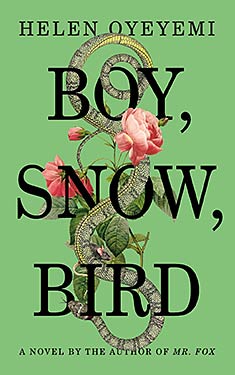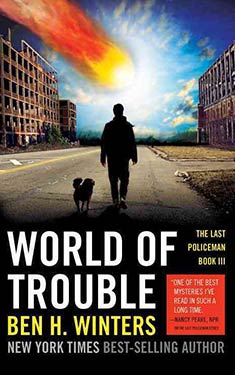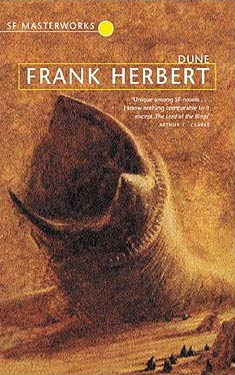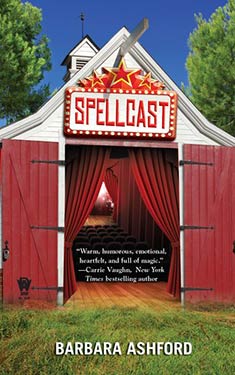Charlotte Perkins Gilman
Completed 5/20/2015, Reviewed 5/21/2015
4 stars
I usually don’t buy books anymore, but somehow lately, I’ve
accumulated a few stacks of used books.
I found this slim work in a nice little used book store at the
coast. Only having seen the title in The
Guardian’s list of must read Science Fiction and Fantasy, and not being an
English major, I had no idea that this was written by the author of one of the greatest
short stories of all time.
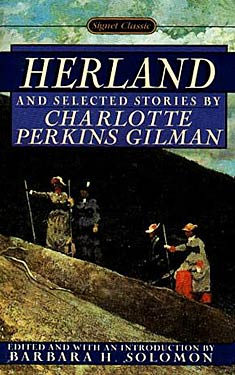 “Herland” is not traditional genre fiction. It’s a one hundred year old utopian story
couched in the forerunner of science fiction, the adventure yarn. Three young men bemoaning the fact that there
is nothing left to explore come upon a secluded land inhabited solely by
women. They are captured by the women
but treated with respect and kindness.
Over the next year, the three men learn about this utopia, reacting with
everything from disbelief to worship.
“Herland” is not traditional genre fiction. It’s a one hundred year old utopian story
couched in the forerunner of science fiction, the adventure yarn. Three young men bemoaning the fact that there
is nothing left to explore come upon a secluded land inhabited solely by
women. They are captured by the women
but treated with respect and kindness.
Over the next year, the three men learn about this utopia, reacting with
everything from disbelief to worship.
This book is really a treatise on a female utopia couched in
an adventure story. Interestingly
enough, I found the adventure aspect not nearly as interesting as the
description of the utopia. The society
began two thousand years before, when all the men died, leaving only women,
trapped in a huge valley whose only outlet was sealed by a volcanic
eruption. One woman spontaneously
becomes parthenogenic bearing daughters, who in turn reproduce asexually. These virgin births eventually replenish the
population. In the struggle to survive,
the women work together to form an active, progressive civilization without
men.
Gilman explains this utopia through a very basic plot
device. The society remembers men and
knows they exist in the outside world.
They believe it is only time before they are discovered and have been
looking forward to learning about the world.
The coming of the three men is this looked for visit. They spend the next year in a Q&A
learning about each other’s worlds. Gilman
covers everything: religion, economics, reproduction, agriculture, and
more. But she does it in a great
way. The men ask questions and the women
explain. Then when the men explain our world,
the women are amazed, analyzing it through their own cultural lens, and asking
the “whys” that the men can’t answer because it’s not logical. I found it an awesome way to present criticism
of contemporary society. And while some
of it is dated, a lot of it is still relevant today. Of course, the men omit a lot of the
problematic issues, like war and disease, trying to make our world seem like
the utopia it clearly isn’t.
It’s a rather tough book to read, mostly because it is a lot
of exposition, with lots of details of the logic of how the utopia evolved as
it did. I was engaged nonetheless. As with any utopian essay, the social harmony
is awesome, but the way asocial behavior is resolved always seems at least a
little unrealistic. Perhaps that’s
because I’m a man indoctrinated in our greedy and individualistic society and
that’s the point of the book. Still, I
give this book four stars out of five. It’s
smart, engaging, and particularly interesting for people like me who like
reading alternative theories. But being
more of a treatise than a novel, it just lacks emotional punch.
